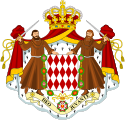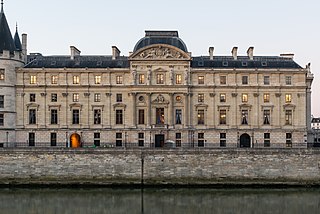
The Court of Cassation is the supreme court for civil and criminal cases in France. It is one of the country's four superior courts, along with the Council of State, the Constitutional Council and the Jurisdictional Disputes Tribunal.

In France, the Conseil d'État is a governmental body that acts both as legal adviser to the executive branch and as the supreme court for administrative justice, which is one of the two branches of the French judiciary system. Established in 1799 by Napoleon as a successor to the King's Council, it is located in the Palais-Royal in Paris and is primarily made up of top-level legal officers. The Vice President of the Council of State ranks as the ninth most important civil servant in France.

France's independent court system enjoys special statutory protection from the executive branch. Procedures for the appointment, promotion, and removal of judges vary depending on whether it is for the ordinary or the administrative stream. Judicial appointments in the judicial stream must be approved by a special panel, the High Council of the Judiciary. Once appointed, career judges serve for life and cannot be removed without specific disciplinary proceedings conducted before the council with due process.
The legal year, in English law as well as in some other common law jurisdictions, is the calendar during which the judges sit in court. It is traditionally divided into periods called "terms".

The Supreme Court is the highest civil and criminal court in Burundi. It has nine members, including the Court President, who are nominated by the Judicial Service Commission and appointed by the President of the Republic after the approval of the Senate. The court's president is referred to as the Chief Justice.
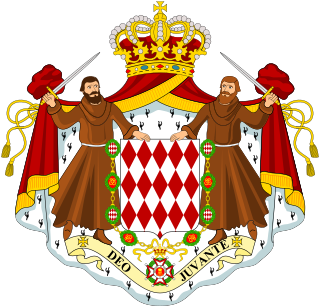
The Monegasque Supreme Court is the highest court of law in the city-state of Monaco for judicial appeals, administrative matters as well as ensuring the constitution of Monaco is upheld. It consists of three full judges and two assistant judges, appointed by the Prince of Monaco at the recommendation of the National Council of Monaco, the Crown Council, the Council of State, the Court of First Instance and the Court of Appeal. This is done in the ratio of one judge per institution. The Supreme Court was established in 1962 following the new constitution to guarantee fundamental liberties.
The Court of Appeal of Paris is the largest appeals court in France in terms of the number of cases brought before it. Its jurisdiction covers the departments of Paris, Essonne, Yonne, Seine-et-Marne, Seine-Saint-Denis, and the Val de Marne.
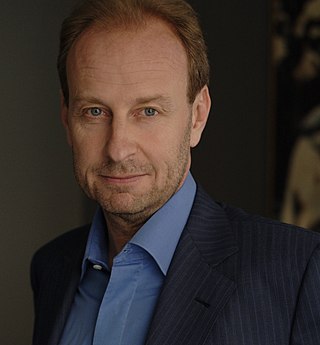
The Bouvier Affair was a number of international lawsuits that started in 2015, and subsequent events. The lawsuits, initiated by Russian oligarch Dmitry Rybolovlev, allege that Swiss art shipper and dealer Yves Bouvier defrauded him by misrepresenting the original cost of art works and subsequently overcharging them. The affair has played out in courts in Monaco, Switzerland, France, the United States, Hong Kong and Singapore.

In French law, the ministère public or le parquet is the authority charged with defending the interests of society and of the application of law. It is primarily made up of magistrates, but is sometimes represented by other persons such as police officials. Its magistrates can be referred to as "standing" magistrates, as opposed to magistrats du siège. Its closest equivalent in some English-speaking countries is the director of public prosecutions and the attorney general in others.

In France, a cour d’appel of the ordre judiciaire (judiciary) is a juridiction de droit commun du second degré, an appellate court of general jurisdiction. It reviews the judgments of a tribunal judiciaire. When one of the parties is not satisfied with the trial court’s judgment, the party can file an appeal. While decisions of a court of first instance are termed "jugements" in French, a court of appeals hands down an arrêt, which may either affirm or reverse the judgment of the court below. An arrêt (judgment) of the court of appeals may be further appealed en cassation. If the appeal is admissible at the cour de cassation, that court does not re-judge the facts of the matter a third time, but may investigate and verify whether the rules of law were properly applied by the lower courts.
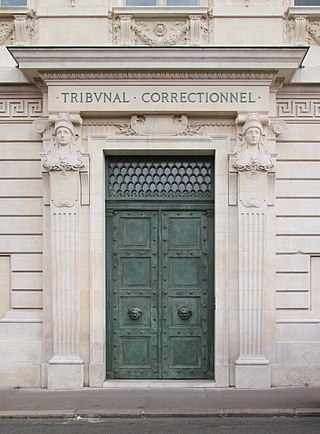
In France, the correctional court is the court of first instance that has jurisdiction in criminal matters regarding offenses classified as délits committed by an adult. In 2013, French correctional courts rendered 576,859 judgments and pronounced 501,171 verdicts.
The French judiciary courts, also known as "ordinary courts", are one of two main divisions of the dual jurisdictional system in France, the other division being the administrative courts.

In France, a procureur général is a prosecutor at a court of appeal, at the Court of Cassation or the Court of Audit. In the case of the appellate courts, the term refers to the magistrate who conducts the prosecution for the court of appeal, as opposed to the judges.
Pierre Truche was a French magistrate. He notably prosecuted Klaus Barbie during his trial in 1987.

The Ministry of Justice is a ministerial department of the Government of France, also known in French as la Chancellerie. It is headed by the Minister of Justice, also known as the Keeper of the Seals, a member of the Council of Ministers. The ministry's headquarters are on Place Vendôme, Paris.

The Court of Revision is the highest judicial court in the Principality of Monaco. The Court rules on all matters concerning violation of the law, and on appeals against any last resort decision or final judgment of the court. The jurisdiction of the Court of Revision is regulated by Article 25 of the Law no 783 July 15, 1965 from 15 July 1965 on judicial organization. By statute, the Court of Revision consists of seven judges: a President, a Vice-President and five advisors. The Court of Revision is a member of the Francophone Association of High Courts of Cassation (AHJUCAF). As of 2021 the president of the Court of Revision is Cécile Chatel Petit, Honorary First Advocate General at the First Civil Chamber of the French Court of Cassation, former member of the Superior Council of the French Magistracy.
The High Council of Judges and Prosecutors is a collegial body invested with a preponderant role within the framework of the administration of justice of the Principality of Monaco. The High Council of Judges and Prosecutors was instituted by the law n° 1364 of November 16, 2009 relating to the statute of the magistracy. In November 2018, the new members of the High Judicial Council have been introduced in their new functions, under the chairmanship of Laurent Anselmi, Director of Judicial Services.
The judicial police in France are responsible for the investigation of criminal offenses and identification of perpetrators. This is in contrast to the administrative police, whose goal is to ensure the maintenance of public order and to prevent crime. Article 14 of the French Code of Criminal Procedure provides the legal basis for the authority of the Judicial police.

National Agency for Digital Forensic Investigation Techniques is a national agency attached to the French Ministry of Justice.
